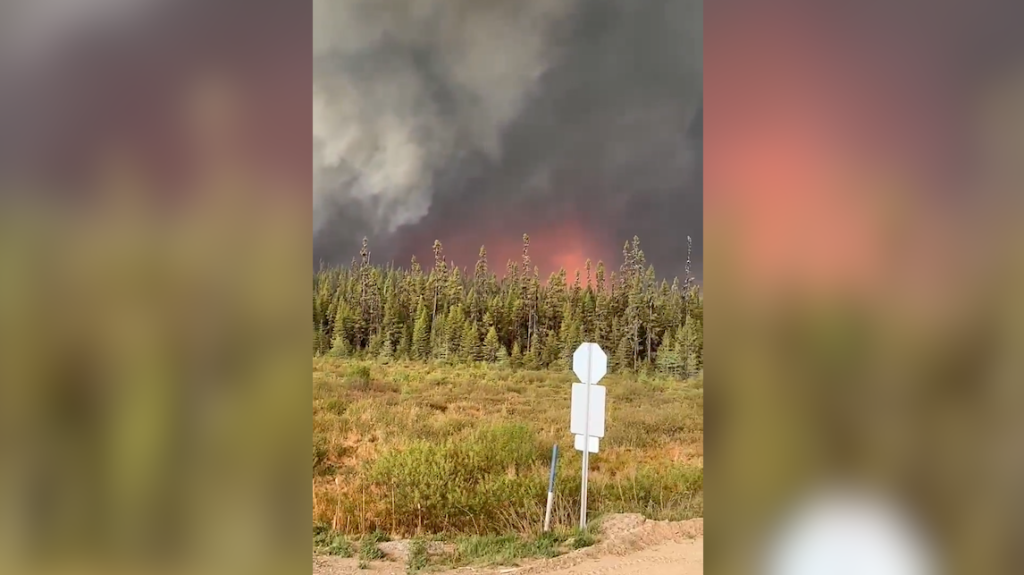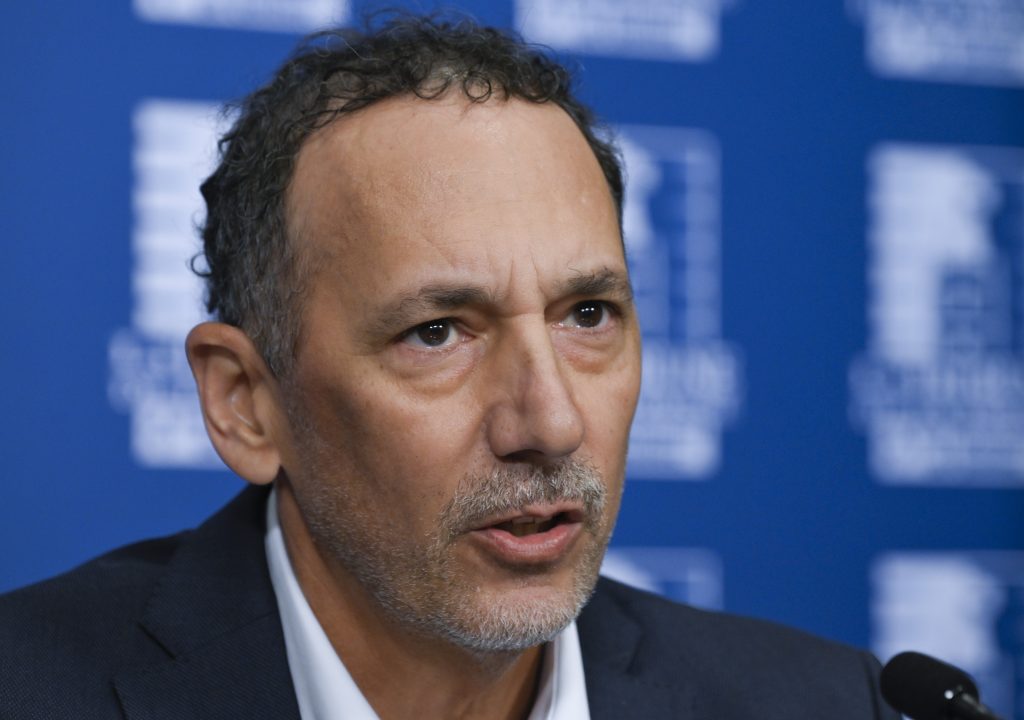Quebec wildfires: Residents of Lebel-sur-Quévillon will be able to return home Saturday

Posted June 28, 2023 12:51 pm.
Last Updated June 28, 2023 7:40 pm.
Residents of Lebel-sur-Quévillon, forced to leave their homes six days ago and for the second time in a month due to forest fires, will be able to gradually return to their homes as of Saturday, July 1. The small Nord-du-Québec municipality is not out of the woods, however.
“Nobody [could have] imagined this,” says Jonathan Avoine, Lebel-sur-Quévillon resident.
During his daily press briefing, held on the municipality’s Facebook page, Mayor Guy Lafrenière shared the good news with his fellow citizens.
“The temperatures of the last few days and those forecast for July make a possible return possible,” he said on Wednesday. After consulting with the emergency committee, SOPFEU, the public safety committee and the civil safety committee, we have decided on a gradual return to the municipality starting Thursday, June 29, with citizens returning on Saturday, July 1.”
Further details on the reintegration procedure are expected to be revealed at the next press briefing, scheduled for Thursday at 11 a.m.
#WATCH: "I basically moved now," says Jonathan Avoine, from Lebel-sur-Quevillon, who has been evacuated twice in the last three weeks due to wildfires. Residents now could gradually return home July 1.
Video from June 2, submitted by Avoine.
READ: https://t.co/shXUtFyKvw pic.twitter.com/pjqGYS9PxY
— CityNews Montreal (@CityNewsMTL) June 28, 2023
“I hope it’s going to last,” Avoine said. “I don’t want to come back because it costs money going up and down.”
Avoine has been staying with his parents in Vaudreuil, west of Montreal, since the evacuations.
“I basically moved now, so I brought a lot of stuff down south.”
The game is far from won, however, stressed Mr. Lafrenière, pointing out that Lebel-sur-Quévillon is still under emergency measures.
Quebec wildfires: Lebel-sur-Quévillon evacuated again
“It is still forbidden to have open fires, to go into the forest, and the campground will remain closed,” he said.
Given that fires continue to wreak havoc near the municipality, despite rainfall ranging from 15 to 40 millimeters having fallen in the area over the past two days, “It’s possible that a third evacuation will take place in July, and that’s out of our control,” warned the mayor.
“There is a risk of fires coming back in full force in July,” he reiterated. However, we think it would be unrealistic to wait until all of these fires are under control, because we’d still be evacuated for four to six weeks.”
“I don’t want to go back and be evacuated a third time,” said Avoine. “I’m done with this.”
The evacuation notice in effect since last Friday was lifted on Tuesday evening, and members of the Mistissini Cree community were returning to their homes on Wednesday.
Acceptable air quality
Early Wednesday morning, Environment Canada issued a smog warning for the Abitibi-Témiscamingue and Lower Laurentians regions. A special air quality bulletin was issued for the northern part of the province.
However, air quality was considered good or acceptable in most regions of Quebec, according to the air quality index published by the provincial Ministry of the Environment, the Fight against Climate Change, Wildlife and Parks.
As of Wednesday morning, SOPFEU counted 73 fires still active in the intensive zone and another 37 in the northern zone.
But for Thursday, Environment Canada says air quality in Montreal could be affected once again.
Stress, eco-anxiety due to wildfires
Wildfires have brought stress to those directly affected by them in northern Quebec, as well as a heightening of eco-anxiety, or worry about the future for the rest of the population, after smog blanketed Montreal recently due to the blazes.
READ: Smog warning lifted for Montreal, severe thunderstorm warning in effect
“When you have to evacuate, it’s difficult because you face like a state of uncertainty, You don’t know what will happen, you have to take quick decisions,” says psychologist Dr. Geneviève Beaulieu-Pelletier. “We can have many thoughts that are really anxious and we can feel very fearful distress also, so it’s like a mix of emotion. You can also feel anger, helplessness.”
Experts say feelings of eco-anxiety are valid.
“It’s not the first time we hear about natural catastrophes, we know it happens frequently, but not as close as what it is right now,” she said. “So it’s normal to feel a higher level of anxiety at that point.”
– With files from The Canadian Press








